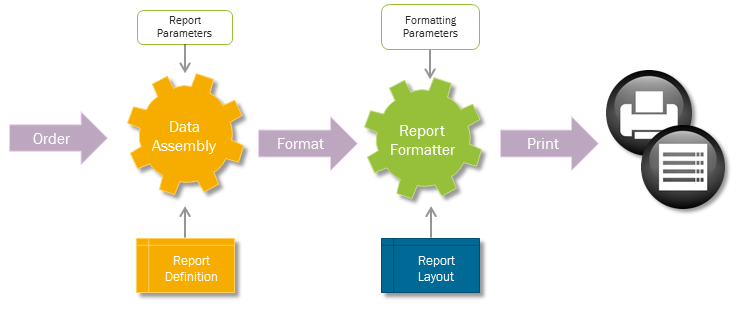Operational reporting is the backbone of efficient business intelligence, providing real-time insights into an organization’s day-to-day operations. In a rapidly evolving business landscape, understanding and implementing operational reporting can make a significant difference in decision-making processes.
Key Components of Operational Reporting
Operational reporting relies on three main components: data sources, data integration, and report generation tools. Data sources encompass various repositories such as databases, spreadsheets, and external APIs. Integration ensures seamless data flow, while report generation tools translate raw data into meaningful insights.
Benefits of Operational Reporting
The benefits of operational reporting are manifold. Real-time insights empower businesses to make informed decisions promptly, contributing to increased efficiency and productivity. With operational reporting, organizations gain a competitive edge by staying ahead of market trends.
Challenges in Operational Reporting
Despite its advantages, operational reporting faces challenges such as data accuracy issues, integration complexities, and security concerns. Overcoming these challenges requires meticulous attention to data validation, regular updates, and the implementation of user-friendly interfaces.
Best Practices for Effective Operational Reporting
To ensure the effectiveness of operational reporting, businesses should focus on data validation, regular updates, and user-friendly interfaces. These practices enhance the accuracy and accessibility of operational reports, making them valuable assets in decision-making processes.
Operational Reporting vs. Analytical Reporting
It’s crucial to distinguish between operational and analytical reporting. While operational reporting provides real-time data on day-to-day activities, analytical reporting focuses on in-depth analysis and strategic insights. Together, they form a comprehensive business intelligence strategy.
Case Studies: Successful Implementation of Operational Reporting
Several companies have successfully implemented operational reporting, witnessing improved decision-making and operational efficiency. Case studies illustrate how businesses across industries have leveraged this tool to gain a competitive advantage.
Future Trends in Operational Reporting
The future of operational reporting lies in advanced analytics, artificial intelligence integration, and cloud-based reporting solutions. Businesses that embrace these trends will stay ahead in the ever-evolving landscape of business intelligence.
Selecting the Right Operational Reporting Tools
Choosing the right operational reporting tools involves considering criteria such as scalability, ease of use, and integration capabilities. Popular tools in the market include Tableau, Power BI, and Looker.
How to Overcome Operational Reporting Challenges
Addressing challenges in operational reporting requires strategic planning and continuous improvement. Proactive measures, such as regular audits and system updates, contribute to the long-term success of operational reporting initiatives.
The Role of Operational Reporting in Digital Transformation
Operational reporting plays a vital role in digital transformation by integrating seamlessly with digital strategies. It enhances organizational agility, allowing businesses to adapt to changing market conditions swiftly.
Measuring the Success of Operational Reporting
Measuring the success of operational reporting involves monitoring key performance indicators (KPIs) and implementing evaluation techniques. This ensures that operational reporting continues to add value to the organization.
Training and Skill Development for Operational Reporting Teams
Skilled personnel are essential for effective operational reporting. Organizations should invest in training programs and certifications to ensure their teams are equipped with the necessary skills to harness the full potential of operational reporting.
Common Misconceptions about Operational Reporting
Dispelling myths and misunderstandings about operational reporting is crucial. Accurate information is essential to foster trust in the capabilities of operational reporting and encourage its widespread adoption.
Conclusion
In conclusion, operational reporting is a cornerstone of modern business intelligence, providing real-time insights, improving decision-making, and enhancing overall efficiency. Businesses that embrace operational reporting as a strategic asset will undoubtedly position themselves for success in an increasingly competitive environment.
